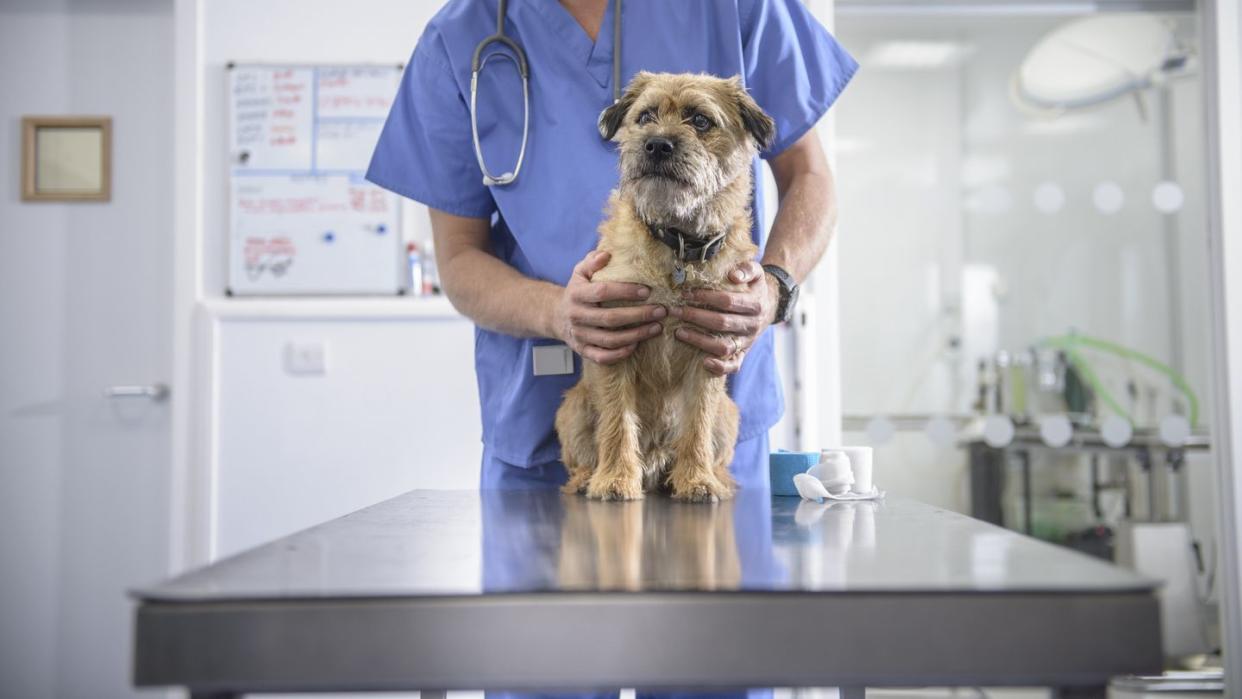6 Symptoms of the Mysterious New Dog Illness That May Deceive Pet Owners

By now, most dog owners have heard about the mysterious disease that is making dogs across the U.S. sick. According to the American Veterinary Medical Association, the illness has spread to 14 states from California to Florida, and that number is expected to grow as holiday travel continues. Much is unknown about the disease (whether it is bacterial, viral or if it is a variant of kennel cough), but experts tell pet parents not to panic: There are measures you can take to keep your pet safe. Dr. Aziza Glass, veterinarian at Houston's Complete Animal Wellness and Longevity Medispa, helped explain the disease and what pet parents should look for.
What symptoms should pet parents look for?
Dr. Glass explains that the symptoms are common of any respiratory illness:
cough
sneezing
nasal discharge
eye discharge
fever
difficulty breathing
Editor's note: If you have concerns about your dog's health, or if they are experiencing any of the above symptoms, contact your veterinarian ASAP.
She says, "What is different about MRCI (Mysterious Respiratory Canine Illness) is that it appears to be highly contagious, rapidly spreading among dogs, even those that seemingly have little contact with others. Also, once a cough develops, it can persist for months. The severe form of this disease can develop into life-threatening pneumonia and even death."
When should a pet owner seek veterinary care if they suspect their dog is sick?
Dr. Glass says, "First and foremost, don’t panic. If you suspect your dog is sick, schedule an appointment with your primary care veterinarian. Depending on the severity of symptoms, your veterinarian may want to perform diagnostics like chest radiographs and/or a respiratory disease panel. While this is more expensive, these diagnostics give a lot of information, which in turn helps the veterinarian make a more informed decision on what is the best treatment plan for your pet. Additionally, results from these tests will be used by research scientists working diligently to learn more about this mystery pathogen."
What precautions should pet owners take to help prevent the spread of the disease?
According to Dr. Glass, there are simple things a pet parent can do to keep their dog healthy. It starts with basic veterinary care and nutrition.
Dr. Glass explains that keeping your pet current on vaccinations is important during this outbreak. "Make sure your pet is current on vaccinations, especially those related to respiratory illnesses, like Bordetella and Canine Influenza. While we know the MCRI is different from these pathogens, respiratory diseases are sometimes complicated with the presence of multiple culprits. In veterinary medicine, this is called the canine infectious respiratory disease complex, commonly known as 'kennel cough.' Being up-to-date on vaccinations gives your pet’s body better immunity against known pathogens, and thereby decreasing the severity of symptoms if exposed to them," she says.
Because of the way the disease is transmitted, it's important to decrease exposure to other dogs when possible. Dr. Glass says, "Try to keep your dogs separated from others as much as possible. This includes dog parks, grooming and doggy day cares. If that is not possible, inquire about the sanitation protocols and other methods these facilities use to decrease the transmission of disease between pets. Are they accepting pets that are already coughing? If so, are they kept separate from the general population? Are they aware of the MRCI? Which vaccines do they require for entry into their facility? All of these questions inform you which facilities are well-equipped to help prevent or minimize an outbreak while your dog is present."
Dr. Glass, expert veterinarian at Freshpet, also advises pet owners to make sure their dog is receiving good nutrition. She says, "If your dog does get sick, the food you feed them makes a big difference. When dogs are ill, they have a harder time eating and staying hydrated, so consider feeding your dog fresh food to keep up their hydration levels more easily."
Are certain dogs at higher risk for the virus?
Dr. Glass says that the highest risk factor is proximity to other dogs. She says, "Respiratory disease is easily spread via aerosol droplets in the air. Sometimes it can be spread by fomites, or inanimate objects that have infected particles on its surface. Research scientists and veterinarians are working diligently to identify the pathogen that is causing this alarming disease, however, there is much we still don’t know. What is clear is that dogs that are exposed to areas where there is a lot of 'dog traffic' (ie. boarding, doggy daycare, dog parks, and groomers) are at a higher risk of getting infected."

You Might Also Like


